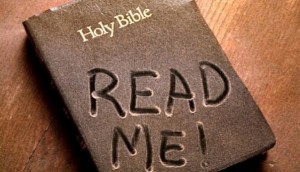The Bible In A Year
Lent – Pentecost Week 1 of 17
February 25- March 2, 2019
Readings for the Week
Theme of the week: This week is action packed! Enjoy the wonderful melodrama of Esther, followed by the pointed letter of James. These books share the distinction of being the least accepted books of the Bible! We will end the week with the Gospel according to Mark – the most concise telling of Jesus’ life, which moves at a very fast pace! Next Sunday is “Transfiguration Sunday” – a story found in Mark chapter 9.
Monday -Esther chapters 1, 2, 3 & 4
Tuesday -Esther chapters5, 6, 7, 8, 9 & 10
Wednesday -The entire book of James
Thursday -Mark chapters 1, 2, 3, 4 & 5
Three days on Mark’s account of Jesus’ ministry.
Friday -Mark chapters 6, 7 & 8
Saturday-Mark chapters 9 & 10
The Bible In A Year
Lent – Pentecost Week 1 of 17
A Framework for Understanding
The book of Esther
The book of Esther is unique.
• It is the only book in the Bible that does not make any direct references to God –the words “God” or “Lord” are not used at all, the name of God is never mentioned
• It is one of only two books from the Hebrew Scriptures which were not found in the collection of scrolls known as “The Dead Sea Scrolls”
The Jewish celebration of Purim is derived completely from this book. “Purim” comes from chapter 3:7, when the enemies cast “pur”, or lots, to determine the day of the destruction of the Jews. This holiday – usually celebrated by Jewish people about a week after Christians have started into Lent – is a joy-filled festival honoring the work of God to bring about reversals.
As you read the book, be aware that the animosity between Haman and Mordecai is one of ancestry, going back to the actions of Saul, as told in 1 Samuel 15. Even in the Bible, men with grudges make a mess of things, and it is up to a woman to straighten it out!
James
The book of James has been one of the most debated books of the Bible. Church history shows that it was not immediately accepted into the “cannon” of the Bible by all Christian leaders. In the time of the reformation, Martin Luther believed that the writings of James actually undermined other Christian teachings.
Some of the points of debate have been:
• Who is James?
• When was the letter written?
• What is actually meant by “faith without works is dead”?
• Is this writing actually a letter?
For some, the answers to these questions determine the book’s value and proper place in or out of the canon.
